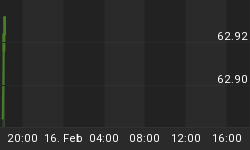Greed rules the markets once again.
In July, the idea that smart money was awash with fear and greed appeared to have been banished.
You could easily discern that by looking at the Smart Money Flow Index (SMFI), a tool that measures action in the Dow Jones Industrial Average during the first 30 minutes and final hour of trading. SMFI dropped to its lowest reading since 2011 signaling extreme fear and pessimism.
But after all that nail-biting uncertainty, it’s full risk-on once again, with financial markets throwing caution to the wind, smart money with its factor tilts and smart beta be damned.
Right now, investors prefer the high-wire act. Markets have just shrugged off a weaker-than-expected employment report as well as ongoing trade war tensions and sub-par macroeconomic data:
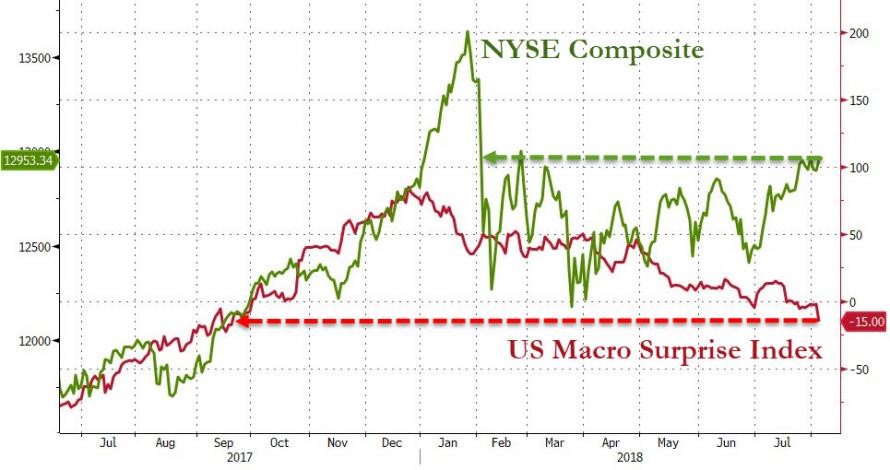
(Click to enlarge)
The CNN Fear and Greed Index (VIX) is firmly back into greed territory once again. Never mind the fact that VIX Futures and options speculative positioning are now at their most net short since December 2017…
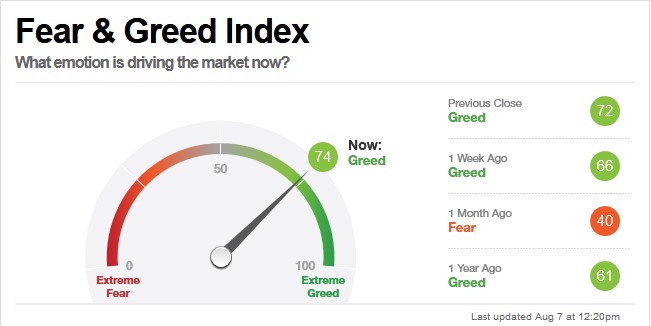
(Click to enlarge)
Meanwhile, equity markets have roared back to life with the S&P 500, Nasdaq Composite and the Dow Jones racking up impressive gains over the past week:
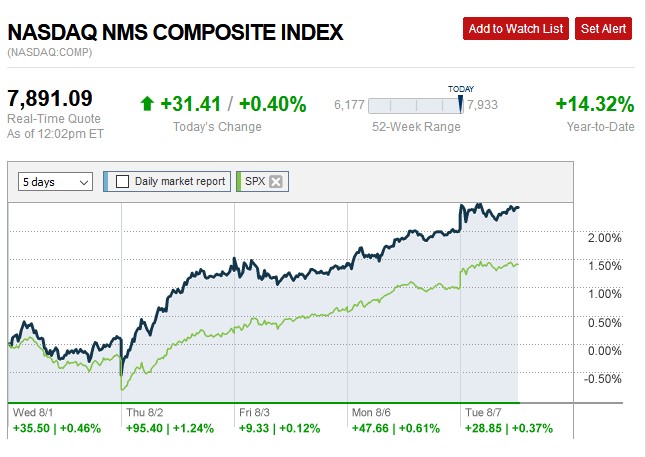
(Click to enlarge)

(Click to enlarge)
Source: CNN Money
Admittedly, record Q2 2018 earnings by the S&P 500 are having a big say in that. Related: Economic Growth Slows In The UK And EU
So far, 80 percent of S&P 500 companies that have returned their Q2 scorecards have exceeded Wall Street estimates, a record since FactSet earnings data became available a decade ago.
Blended earnings growth has so far clocked in at 24.0 percent, the highest clip since Q3 2010.
The blockbuster numbers have prompted analysts to dish out upgrades generously—the bottom-up price target for the S&P 500 over 12 months is 3144.93, about 11.2 percent upside to Friday’s close. Wall Street has issued 10,879 ratings, with 53 percent of those being ‘Buy’ ratings; 41.6 percent are ‘Hold’ and only 5.4 percent are ‘Sell’ ratings.
That heavy dose of optimism is already showing.
The heavy short-selling of bonds and gold suggests that investors are now brimming with confidence. Speculators have added to their Treasury short positions in 4 out of the last 5 weeks, marking the biggest aggregate addition to shorts since November 2017.
Previously there were fears that the yield curve would collapse or even invert thus signaling the onset of a recession. But the yield curve has since climbed from a multi-year low of 24 basis points to 32 basis points currently.
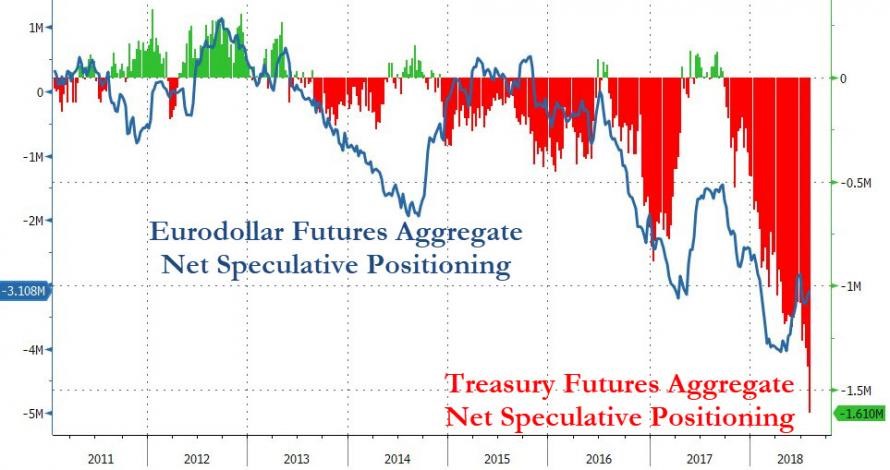
(Click to enlarge)
Gold shorts have hit record levels with hedge funds adding to short positions for several weeks now:

(Click to enlarge)
Too Much Greed Can Be Harmful
A little bit of fear and greed are good for the markets. But as with everything else, moderation is key.
Related: Mexico’s Fintech Industry Is Booming
Investors have an almost innate desire to accumulate as much wealth as possible in the shortest possible time. Riskier investments have greater potential for rewards, but also a bigger potential for catastrophic failure.
When things are going well (as they arguably are right now), investors tend to get greedier. Doubt fades and risk appetite balloons. Suddenly, the average investor starts thinking that safe havens like gold and bonds are for suckers.
But eventually, a tipping point is reached. Too much greed leads to investors losing perspective of the underlying risks and then… pop goes the weasel.
It’s exactly this kind of backdrop, however, in which contrarian investors tend to thrive the most.
By Alex Kimani for Safehaven.com
More Top Reads From Safehaven.com





